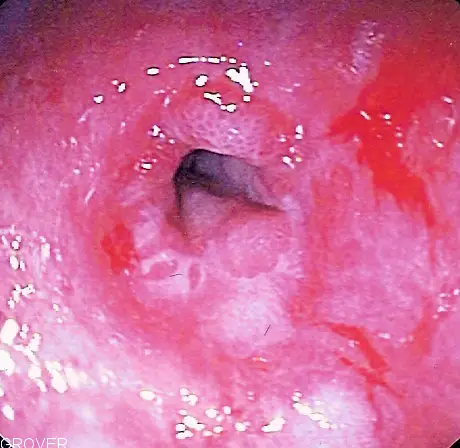Heartburn, also known as acid reflux, occurs when stomach acid flows back into the esophagus, causing a burning sensation in the chest. This common condition affects millions of Americans daily. Understanding the latest treatments and medications can help manage and alleviate symptoms effectively.
Effectiveness of Heartburn Treatment Methods
| Treatment Method | Effectiveness (%) |
|---|---|
| Antacids | 60% |
| H2 Blockers | 75% |
| Proton Pump Inhibitors (PPIs) | 90% |
| Vonoprazan (PCAB) | 95% |
| LINX Procedure | 85% |
This chart highlights the effectiveness of different heartburn treatments, with Vonoprazan (PCAB) showing the highest success rate at 95% and antacids offering moderate relief at 60%.
Understanding Heartburn and Its Causes
Heartburn is often triggered by certain foods, beverages, and lifestyle habits. Common culprits include fatty or spicy foods, caffeine, and large meals. When the lower esophageal sphincter (LES) weakens or relaxes inappropriately, stomach acid can escape into the esophagus, leading to discomfort. Factors such as obesity, pregnancy, and certain medications can increase the risk of developing heartburn.
Prevalence of Heartburn Among the U.S. Population
| Demographic Group | Prevalence (%) |
|---|---|
| Adults (18-34 years) | 25% |
| Adults (35-54 years) | 40% |
| Adults (55+ years) | 50% |
| Obese Individuals | 60% |
| Pregnant Women | 70% |
This chart illustrates the prevalence of heartburn among different demographic groups in the U.S., highlighting increased rates among older adults, obese individuals, and pregnant women.
Over-the-Counter Medications: First Line of Defense
For many, over-the-counter (OTC) medications provide quick relief from heartburn symptoms.
- Antacids like Tums, Rolaids, and Maalox neutralize stomach acid, offering immediate but short-term relief. They are best used for occasional, mild heartburn but do not treat underlying causes. Overuse can lead to side effects like constipation or diarrhea, depending on the active ingredients.
- H2 receptor blockers, such as famotidine (Pepcid), reduce acid production and are effective for longer-lasting relief, typically working within an hour and lasting up to 12 hours. These are useful for those experiencing heartburn more frequently but not necessarily every day. While generally safe, long-term use should be monitored by a healthcare provider.
- Proton pump inhibitors (PPIs), including omeprazole (Prilosec OTC) and esomeprazole (Nexium 24HR), block acid production more effectively and are suitable for frequent heartburn sufferers. PPIs take longer to work (often requiring several days for full effect) but provide prolonged relief by reducing acid production at the source. Long-term use has been linked to potential side effects, such as vitamin B12 deficiency, kidney issues, and an increased risk of infections, so they should only be used under medical supervision.
Prescription Medications: Advanced Options
When OTC options are insufficient, healthcare providers may prescribe stronger medications.
- Prescription-strength PPIs like pantoprazole (Protonix) and dexlansoprazole (Dexilant) offer more potent acid suppression. These medications are commonly prescribed for individuals with moderate to severe GERD who do not find sufficient relief from OTC treatments. They work by blocking an enzyme in the stomach lining responsible for acid production, reducing acidity levels for an extended period. Long-term use should be carefully monitored by a healthcare provider due to potential risks such as nutrient malabsorption, kidney issues, and an increased susceptibility to infections.
- Vonoprazan (Voquezna), a recently FDA-approved potassium-competitive acid blocker (PCAB), provides faster and longer-lasting relief compared to traditional PPIs. Unlike PPIs, which require activation in an acidic environment, PCABs work immediately, offering a quicker onset of action. Studies have demonstrated that vonoprazan is more effective in healing erosive esophagitis and controlling acid reflux symptoms. It has also been shown to be beneficial in patients who have developed resistance to standard PPI therapy. While promising, further studies continue to evaluate its long-term safety and efficacy, and patients should consult their doctors to determine if it is the right choice for them.
Innovative Treatments: Beyond Medication
For individuals who do not respond adequately to medications, new minimally invasive procedures are available:
The LINX Reflux Management System involves placing a small ring of magnetic beads around the LES to strengthen it and prevent acid reflux. This procedure is minimally invasive and typically performed as an outpatient surgery, requiring only a short recovery time.
Dr. Blair Jobe, director of the Esophageal and Lung Institute at AHN, stated, “While LINX may have higher upfront costs compared to Nissen fundoplication, our research suggests that insurers should consider its long-term benefits. Patients often experience a greater reduction in GERD-related medical expenses post-procedure.” Additionally, studies have shown that over 90% of LINX patients report symptom relief lasting at least 10 years, with 79% discontinuing proton pump inhibitors and 89% achieving normalized esophageal pH levels.
Effectiveness: Clinical studies indicate that over 85% of LINX recipients report a substantial decrease in GERD symptoms, and most are able to discontinue long-term medication use.
Cost: The procedure costs between $12,000 and $20,000 in the United States, depending on the medical facility. Though it is more expensive than daily medication, many patients consider it a worthwhile investment for long-term relief.
Real-Life Case: Successful Management of Heartburn
A 45-year-old woman from Chicago experienced chronic heartburn for years. After consulting with her healthcare provider, she was prescribed pantoprazole, which significantly reduced her symptoms. Additionally, she made lifestyle changes, such as avoiding late-night meals and elevating the head of her bed, further alleviating her discomfort. Over time, she also incorporated non-medical strategies such as chewing sugar-free gum to stimulate saliva production, which helped neutralize acid.
Expert’s Recommendation
Health care advisor Reyus Mammadli emphasizes the importance of individualized treatment plans. He advises, “While medications are effective, combining them with lifestyle modifications—like weight management and dietary adjustments—can enhance outcomes for those suffering from heartburn.”
Cost of Various Heartburn Treatment Methods
This chart provides a cost comparison of various heartburn treatment options, from affordable over-the-counter medications to high-cost surgical interventions like the LINX procedure.
Practical Tips for Managing Heartburn
- Eat Smaller Meals: Large meals can increase stomach pressure, leading to acid reflux. When the stomach is too full, it exerts pressure on the lower esophageal sphincter (LES), making it more likely to open and allow acid to escape. Instead of three large meals, opt for five to six smaller meals spread throughout the day. Chewing food thoroughly and eating at a slower pace can also help digestion and reduce the risk of reflux episodes.
- Avoid Trigger Foods: Identify and limit foods and beverages that trigger your symptoms. Common triggers include acidic foods (like tomatoes and citrus fruits), spicy dishes, caffeine, carbonated drinks, chocolate, and fried foods. Some people may also experience reflux from dairy products or high-fat meals. Keeping a food diary can help pinpoint personal triggers so they can be minimized or eliminated from the diet.
- Stay Upright After Eating: Wait at least two to three hours before lying down after a meal. Lying down too soon after eating allows stomach acid to flow back into the esophagus due to gravity’s reduced assistance. If you must recline, try sitting upright or propping yourself at an incline to reduce reflux risk.
- Elevate the Head of Your Bed: Raising the head of your bed by six to eight inches can help prevent nighttime reflux. This can be achieved by using bed risers or a wedge pillow, which ensures that gravity helps keep stomach acid from rising into the esophagus. This method is especially beneficial for individuals who experience frequent nighttime heartburn or wake up with acid reflux symptoms.
- Drink Plenty of Water: Staying hydrated can help dilute stomach acid and promote digestion. However, excessive fluid intake during meals should be avoided, as it can increase stomach pressure and contribute to reflux.
Editorial Advice
Managing heartburn effectively often requires a combination of medications and lifestyle changes. Consult with a healthcare provider to develop a personalized treatment plan that addresses your specific needs. Staying informed about the latest treatments and being proactive in managing your health can lead to significant improvements in your quality of life.
About the Author
Reyus Mammadli is the author of this health blog since 2008. With a background in medical and biotechnical devices, he has over 15 years of experience working with medical literature and expert guidelines from WHO, CDC, Mayo Clinic, and others. His goal is to present clear, accurate health information for everyday readers — not as a substitute for medical advice.







